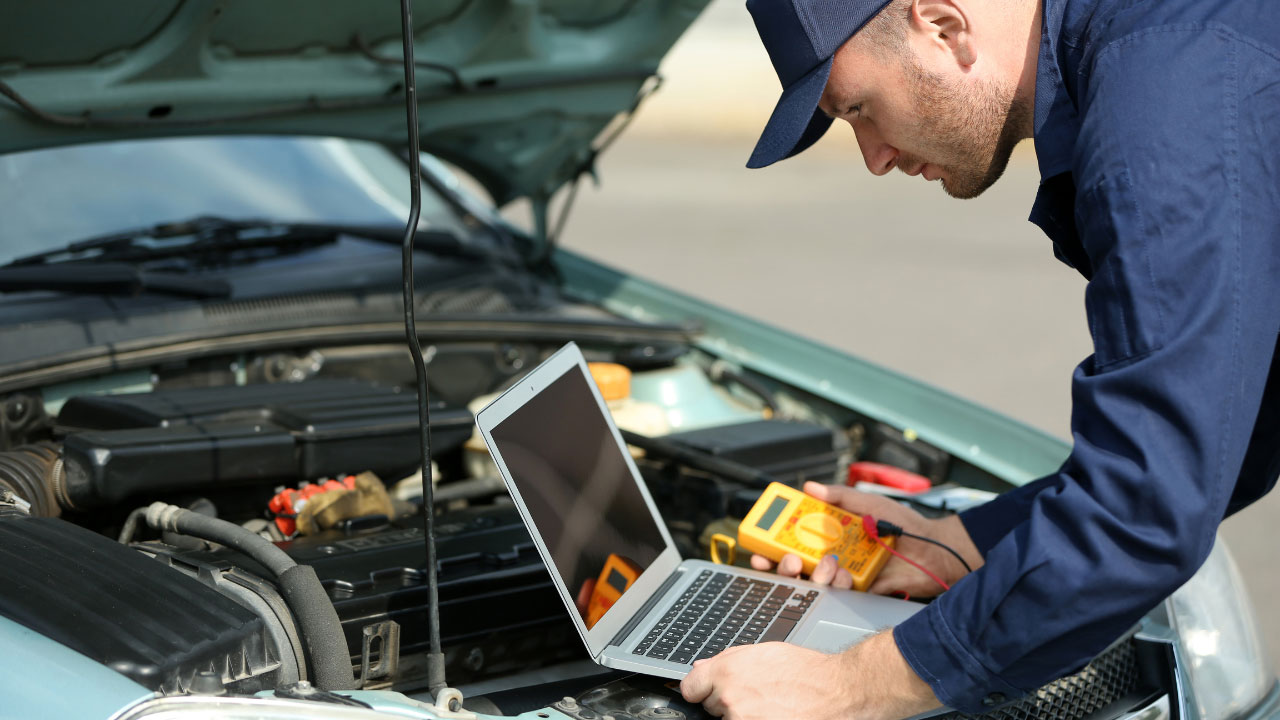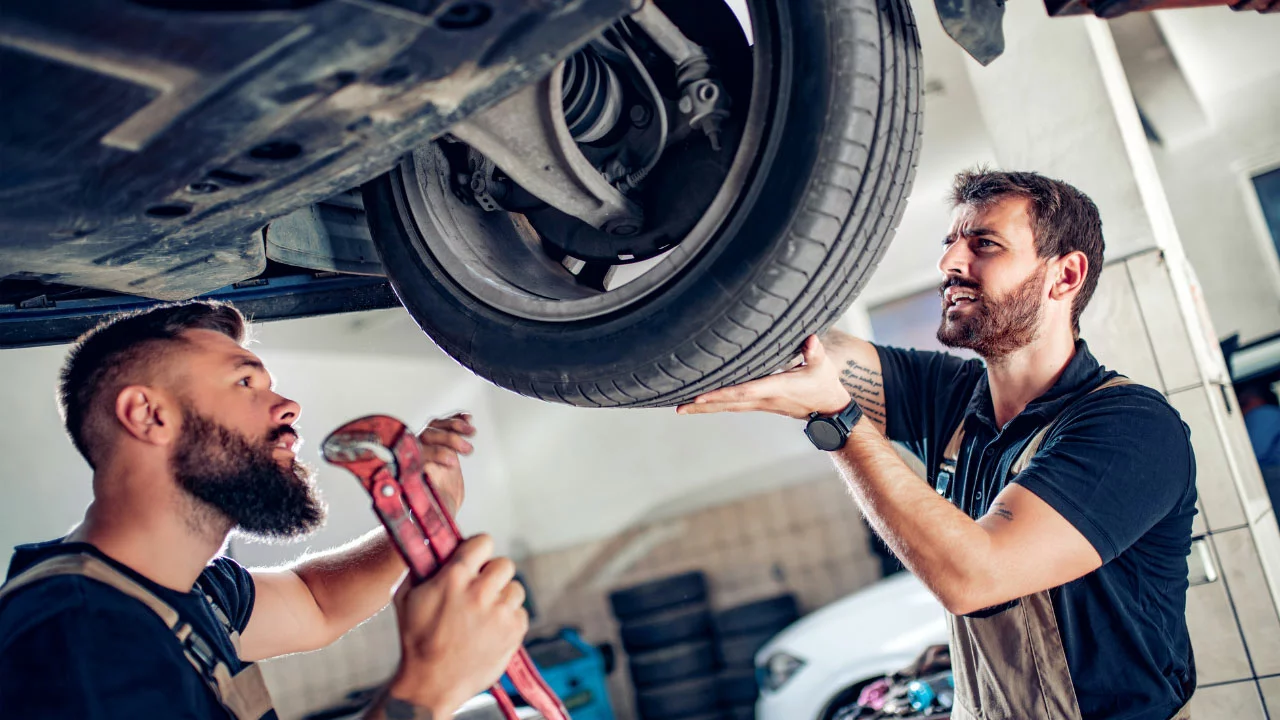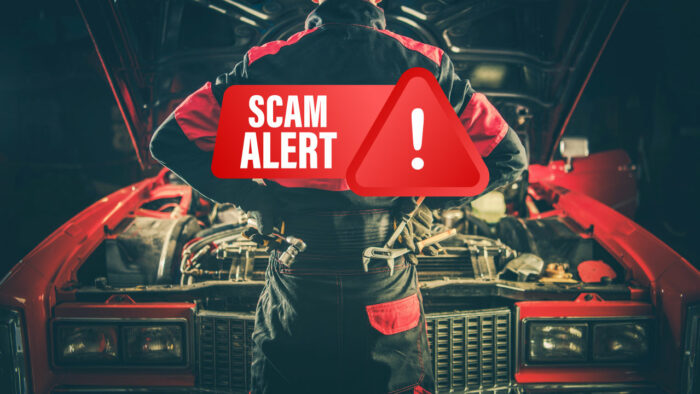There are times when car owners return from an auto repair shop and start feeling overcharged. These car owners fell victim to car repair scams. Auto repair scams are extremely common in auto repair shops and among mechanics. If you are not aware of their tactics, you will continually be a victim of their fraudulent schemes. How can we identify scammers in auto repair shops? This article highlights common car repair scams and provides tips to avoid them.
Identifying Common Car Repair Scams
Car repair scams are very common nowadays, and car owners seem to always fall for them because they have no idea how to identify them. Understanding “how to know if a mechanic is ripping you off” comes with being able to identify the common vehicle scams. Some of the most common auto repair scams are:
- Fake diagnoses and fabricated problems.
- Inflated prices.
- Unnecessary replacement and repairs.
- Bait and switch.
- Neverending repairs.
Fake diagnoses and fabricated problems
This is one of the most common car repair scams among car owners: fake diagnoses and fabricated problems. Giving false diagnoses and bringing up fabricated issues are simple ways to take advantage of unsuspecting car owners. Some mechanics fabricate issues and offer false diagnostics of vehicles in order to get customers to pay more than they should.

They are fully aware that some car owners, especially new car owners, are unaware of the mechanics of a car and would want to deceive them into believing some huge mechanical problem may arise in the future if they don’t make a particular repair or buy a specific car part. These car owners end up falling victim to these con artists and spending excessive sums of money for no apparent reason.
Inflated prices
Most car owners assume it would be really easy to know when they are being ripped off or overcharged. I mean, everyone should be able to tell when the auto mechanic is charging too much, right? Wrong. Most often, when car owners visit auto repair shops they don’t even realize that they’ve been scammed when they have.
Consider the scenario where a mechanic simultaneously works on two or more components of the car to get it up and running. Say it takes them three hours to fix these components. The auto mechanics may demand payment from the car owner for three hours of labor per repaired or replaced part, thereby overcharging and ripping off the customers.
READ ALSO: How to Buy a Used Car in North Carolina | Detailed Guide
Unnecessary replacement and repairs
Unnecessary replacements and repairs are another popular scam implemented by car repair shops and mechanics to rip off customers. Let’s have a look at this common scenario: a car owner drives their vehicle to the mechanic because they noticed a minor problem with it. After a close inspection, the mechanic points out a few items that need to be replaced and a few that need to be repaired to fix one minor problem. This is one of the oldest tricks in the book, and many car owners still fall for it.

Most of the time, they’ll claim that the air filter needs to be changed or your car will suffer engine damage or failure. Sometimes, they’ll talk about the brakes. All of these are signs to point out a car repair scam.
Bait and switch
A “bait and switch” involves luring car owners into an auto repair shop and offering them cheap services. They lure in customers and point out other vehicle parts that require service, repairs, or replacements. At the end of the day, customers are presented with bills that are way over their budget.
Neverending Repairs
Have you ever asked yourself why mechanics take so long to repair minor car issues? Whenever a vehicle is taking too long to get fixed, car owners should get worried as this may be another scam in progress. Sometimes, these mechanics claim to be fixing from one vehicle part to the other in search of the problem, leading to a chain of neverending repairs. These are merely schemes to con new car buyers and unsuspecting car owners. These consumers are ultimately required to pay for every component that is changed, fixed, or repaired and every hour that is spent working on the vehicle. This also can cause even more harm to the car.
A lot of car owners fall for these scams every day, and these are just a handful of the more common ones. The next section of this article describes how to avoid this scam on your next visit to an auto repair shop.
Be aware: If your vehicle is a used vehicle, a vehicle history report from Vehicles Report can help you predict common repairs and fixes your vehicle will require in the future. A vehicle history report is a document that shows all the records and information of a vehicle from its first owner to its current owner. Some of the records you can find on a vehicle history report from Vehicles Report include accident history, damage history, service and maintenance history, title brand history, ownership history, theft history, and others.
Car owners who are familiar with the service history, maintenance history, accident history, and damage records may be able to identify the repairs a vehicle may require even before visiting an automotive repair shop, as well as spot scams. Vehicles Report provides an upcoming repair and maintenance service to their customers that suggest repair and maintenance based on the vehicle’s mileage readings.
How to avoid a car repair scam and save some money?
There are tips that, when followed, could be a huge money-saving strategy. You can say goodbye to auto repair scams and hello to better services if you follow these tips. The most effective of these tips are:
- Read the auto shop’s reviews.
- Look out for a second opinion.
- Request a written estimate.
- Pay no attention to high-pressure tactics.
- Don’t pay in advance.
- Be sure of your vehicle’s warranty coverage.
- Keep records.

Have a look at the shop’s reviews
If you have little or no idea about how an auto repair shop works and the services they provide, the best place to start is by reading the shop’s reviews and ratings. Pay attention to what customers are saying about the auto repair shop. Be aware that there can be a lot of auto repair shops in your area, so you shouldn’t limit yourself to a particular one. Carefully go through the reviews and comments of various auto repair shops and pick the best one that suits your needs.
You should also pay attention to the bad reviews previous customers left behind. If these reviews point towards fraudulent activity, then you may want to rule out that option and focus on another. If this step is carried out properly, you may be able to find yourself a reliable mechanic for all your vehicle’s servicing, maintenance, and repairs.
Look out for a second opinion
Before committing to a repair or coming to an agreement with the mechanic, make sure to listen to a second, third, or even fourth opinion. It doesn’t cost anything to hear the diagnoses of other auto repair shops, especially if the first shop visited seems like a fishy one.
When you are convinced that the diagnosis is true and not a scam, you can go ahead and sort out an agreement with the auto mechanic.
Request for a written estimate
You need to be completely aware of what you are paying for before opting to make that payment. Make sure you are aware of the parts the mechanic will be working on as well as the associated costs for replacement and repair. When it looks feasible, you must request a written estimate or provide one yourself.
For services costing more than $100, it is legally necessary (in some states) to provide a written estimate. The written estimates include a written quote for the client specifying the vehicle parts that will need to be replaced, repaired, or purchased as well as the labor charges.
READ ALSO: Is Kia a Good Used Car To Buy | Truth You Should Know
Pay no attention to high-pressure tactics
When car owner notices that they are being pressured into making certain decisions at a car repair shop, they should pay no attention to it, as these are just tactics to push customers into making rash decisions and falling for scams. When you feel that you are being pressurized, attempt to slow down the procedure as much as you can. Step back and take a deep breath. Pay attention to what they have to say, and if the suggested improvements are really necessary, go ahead. If not, you can be certain that it is one of the usual auto repair scams.
Don’t pay in advance
Whatever you do, it is recommended that you never pay in advance. Make sure that necessary repairs and replacements are properly done and the car is running properly before any payment is made.
Occasionally, you may be requested to pay for certain vehicle parts in advance, but unless it is absolutely necessary, don’t pay beforehand.
Be sure of your vehicle’s warranty coverage
If your car is brand new, you should have manufacturer’s warranty coverage on a number of components and services. Visit a certified service center that will take your warranty coverage into account to save money and preserve your warranty. You’ll save some money and have a lower chance of falling for an auto repair scam if you have warranty coverage.
Keep records
The more records a car owner keeps after each vehicle repair or maintenance, the less likely they are to fall victim to car repair scams. When you have your maintenance records, you can quickly identify certain scams and avoid such auto repair shops. Verify that the dates, times, repairs, charges, etc. are correctly documented. When your car needs repairs again, you could need these documents.
Final Words
Conclusively, there are some auto repair shops out there that are actively waiting to deliver scams to customers in the guise of services. Some of the most common scams are fake diagnoses and fabricated problems, inflated prices, unnecessary replacements, and repairs, bait, and switch, and repeated repairs. To avoid these scams, there are tips highlighted in this article that you may follow: read reviews; seek second opinions; get a written estimate; keep records; and more. This way, you and your vehicle are less likely to fall for scams.








